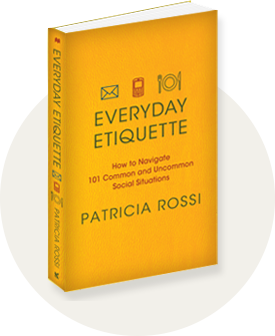 Do’s and Taboos of International Etiquette
Do’s and Taboos of International Etiquette
Whether you are traveling overseas or hosting an international guest at work, it’s important be aware of cultural differences. Your awareness can avoid embarrassment, allow you to relax, and help others around you be at ease.
Do your best to research the country you’ll be visiting and the guests you’ll be hosting. Here are just a few examples of the cultural “do’s” and “taboos” for 4 areas of the world:
SOUTH AMERICA
Do give a firm, brief handshake accompanied with eye contact. It is custom in a few South American countries for women to extend their hands first.
Do dress conservatively. Countries range in formality from Argentina as the most formal and Brazil as the least.
Avoid raising a fist to head level; in Chile it is associated with Communism.
Do plan on long lunches and late, social dinners.
Avoid the OK sign in Brazil; it is offensive.
Avoid putting hands in pockets; in Mexico it is considered rude.
CHINA
Do compliment the host and food during a business dinner.
Do leave business matters for after dinner. Business in China is based on relationship.
Avoid using chopsticks incorrectly. They should not be waved, used to drag plates, or used to spear food. It is custom to ask for Western utensils if chopsticks cannot be mastered.
Do arrive on time; punctuality is valued.
Avoid flippantly giving out your business card. Both hands are used in China to signify giving something of value.
Do address others by their titles and be aware of where you are sitting during a business dinner. The most honored, often the host, will sit in the middle of the table.
Avoid misunderstanding a “weak” handshake. In China, prolonging a handshake is a good sign.
JAPAN
Do dress conservatively when conducting business. Dress with little emphasis on accessories. Women should avoid wearing pants.
Avoid talking with hands, pointing, and using the “OK” sign, which means money.
Do expect others to be fashionably late; punctuality is not expected.
Avoid wrapping gifts in white, bright colors, and bows. But always wrap gifts before presenting them.
Do eat rice plain. Never mix with other food or sauce.
Avoid resting chopsticks on a table, setting them down in an “X” formation, and resting them on separate sides of the plate.
Do return a bow greeting with a bow equally as low as the one received.
Do understand the word “no” is avoided. This is important to know during negotiations since a “yes” may be the response when “no” is the intended answer.
DUBAI
Do acknowledge everyone in the room before conducting business.
Avoid scheduling meetings on Fridays. As Friday is the Muslim day of prayer, the business week in Dubai is Saturday to Wednesday.
Avoid alcohol. Instead of offering to meet over drinks, meeting for tea or tobacco pipes is the alternative.
Do wear modest clothing and neat attire. Women should avoid tight clothing and cover arms.
Avoid extending business meetings and discussions. Most Dubai natives like to finish work before 5 p.m.
Just as we welcome international business travelers and accept their taboos as simple cultural misunderstandings, it’s likely your business peers will do the same. Don’t use this as an excuse to not do your research! It can save you from embarrassment and help you be socially at ease.
Ultimately, when interacting with international travelers or traveling abroad, put on genuine kindness and be considerate to others. Your personality will shine through any cultural taboos you may have overlooked.



